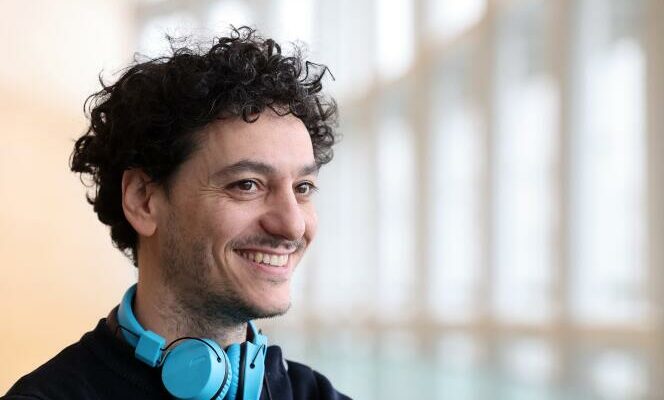Recognized screenwriter (Dheepanby Jacques Audiard, 2015; Problemsby Eric Judor, 2017), author of a successful comedy series on the European Parliament (Parliament2020-2023), Noé Debré, 38 years old, signs with The Last of the Jews his first feature film. He installs there in an unidentified city Agnès Jaoui, as a Jewish mother who is brooding, and her son, played by the fabulous Michael Zindel, who does everything to hide from him that, apart from them, there is no Jewish soul left who live in the city.
Maybe let’s start with Debré?
Yes, absolutely, an Alsatian Jewish surname. There aren’t a thousand and hundreds of them anyway. An Alsatian branch of which I am the last representative. And a Parisian branch, the one you’re thinking of, that I don’t really know. I grew up in Strasbourg.
The last of the Jews, in a way?
At the very least the last of the Jewish Debré, since the Parisian branch was converted a long time ago.
What was your cinematographic genealogy?
“The Midnight Cinema”, on France 3. I don’t see anything else. The first signs are announced around the 2nde. My aunt subscribes me to Cinema notebooks. Otherwise nothing. I go to film and audiovisual school [ESEC] in Paris. The screenwriter Thomas Bidegain comes to teach a course, I approach him, then I ask him by email to take me on as an apprentice. Luckily, it works. Thomas had just written a prophet [réalisé par Jacques Audiard en 2009], which had not yet started filming, and he had accepted many projects while writing it. So he really needed a helping hand. He was very generous.
Having already written about the suburbs for the Kourtrajmé collective and for Jacques Audiard, you bypass the commonplaces of this territory to focus on the departure of Jewish families from working-class neighborhoods. What turned you towards this subject?
The trigger was a short film that I discovered a few years ago at the Clermont-Ferrand Festival. Masel Tov Cocktail [d’Arkadij Khaet et Mickey Paatzsch, 2020] recounted the misadventures of a young Russian Jew who lived in Germany. When I saw it, I said to myself that Jewish life in working-class neighborhoods had never been represented in France. And the screenwriter’s basic reflex, when films lag behind reality, is obviously to write one.
What were your writing choices?
Avoid clichés. I met a lot of people and I promised myself that I would only put in the film things that had been told to us. I was surprised to find that the decision to leave was also, often, a heartbreak. This is why I filmed in the neighborhoods of Noisy-le-Sec [Seine-Saint-Denis]which have more charm than many cities, because I wanted there to be this feeling of loss, of nostalgia.
You have 55% of this article left to read. The rest is reserved for subscribers.
